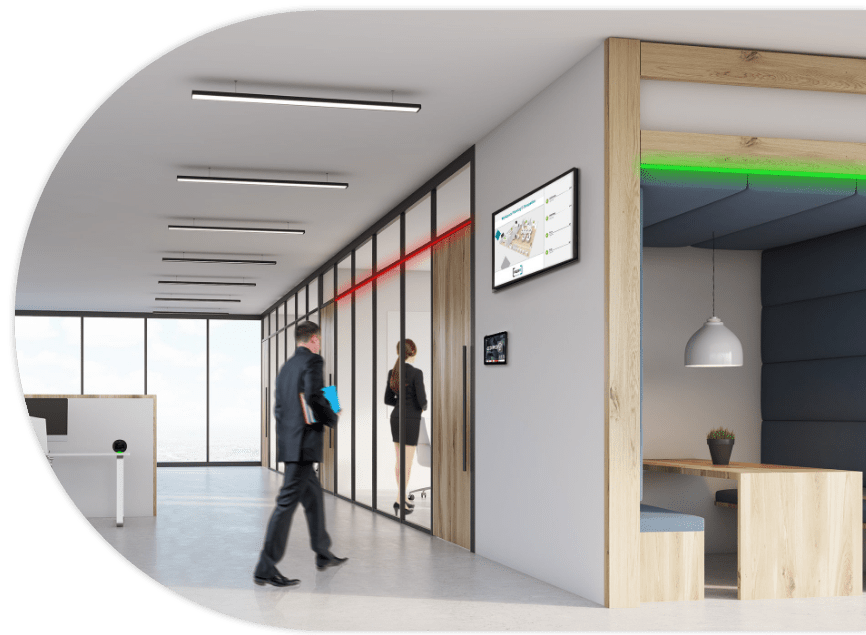
Revitalizing Your Professional Sphere: Embracing the Hybrid Workplace for an Enhanced Workplace Experience
The workplace – a space once confined to the four walls of an office, is now expanding beyond boundaries and into new territory. With the rise of technology and recent events shaping the way we work, it’s no surprise that businesses are redefining their approach to the modern workforce. And in this ever-evolving landscape, one term has been buzzing among professionals and executives alike – the hybrid workplace. But what does it mean? How can it benefit companies and employees? And most importantly, how can we embrace this change for an enhanced workplace experience? Let’s dive into the world of trust, collaboration, communication, productivity, autonomy and choice as we explore the unique blending of traditional and flexible work models. Join us on a journey towards a seamless workplace experience that combines physical spaces with virtual platforms – all while maintaining a sense of control over our work-life balance. It’s time to revitalize your professional sphere by embracing the hybrid workplace revolution.
Exploring the Hybrid Workplace
In today’s rapidly evolving work environment, understanding the hybrid workplace is essential. This model combines remote and onsite work, allowing employees a blend of flexibility and structure. Its unique approach aims to boost both productivity and employee satisfaction.
What Is a Hybrid Workplace?
A hybrid workplace is designed to support a workforce that splits its time between working at an office and remotely. The key here is flexibility; employees choose where they work based on their needs and the tasks at hand.

The Perks of Hybrid Working
Employees enjoy a variety of benefits from hybrid models, such as improved work-life balance, reduced commute times, and enhanced autonomy. This flexibility can lead to increased job satisfaction and retention rates.

Navigating Challenges in Hybrid Settings
Transitioning to a hybrid setting isn’t without challenges. Issues such as maintaining company culture, ensuring communication, and managing remote team dynamics are critical hurdles that need addressing.

Interested in PADS4 Platform ?
Optimizing Hybrid Work Dynamics
To create an effective hybrid workplace, companies must adopt strategies that cater to diverse employee needs while maintaining operational efficiency.
Variety and Control in Work Arrangements
Giving employees the ability to choose their working arrangement not only empowers them but also makes them more productive. Whether it’s choosing a workspace or defining their work hours, control is a significant factor in employee happiness.


Balancing Professional and Personal Lives
Incorporating flexibility into work schedules helps employees manage their personal responsibilities alongside professional duties, thus fostering a better sense of well-being and reducing burnout.
Promoting Autonomy Through Choice
Autonomy in decision-making regarding when and where to work enhances employee trust and commitment towards the organization, driving better overall performance.

Cultivating a Connected Hybrid Team.
Fostering a thriving hybrid environment requires intentional efforts in building trust, leveraging technology, and enhancing connectivity among team members scattered across various locations.
Maintaining Productivity with Collaboration Tools
Utilizing platforms like Microsoft Teams ensures that teams remain productive and collaborative regardless of physical location. These tools help simulate an office environment virtually, keeping everyone connected.
Leveraging Tech for Seamless Operations
The right technology stack can make transitioning between home and office seamless. Integrating user-friendly software solutions supports continuous workflow and helps maintain data security across different working environments.
Cultivating Trust Through Engagement Strategies
Building trust within a hybrid team involves regular check-ins, transparent communication channels, and consistent feedback mechanisms. It’s about creating an inclusive atmosphere where every team member feels valued and heard.
What is a hybrid workplace and how does it enhance workplace experience?
A hybrid workplace is a flexible work model that allows employees to split their time between working remotely and onsite at an office. It enhances workplace experience by providing flexibility, improving work-life balance, and fostering autonomy, which leads to higher job satisfaction and productivity.

What are the key benefits of a hybrid workplace for employees?
Key benefits include improved work-life balance, reduced commute times, enhanced autonomy, and greater control over their work schedules and environments. This flexibility can increase job satisfaction and retention rates.

How can companies address communication challenges in a hybrid workplace?
Companies can address communication challenges by leveraging collaboration tools, establishing regular check-ins, creating transparent communication channels, and fostering an inclusive atmosphere where all team members feel valued and heard.

What are some best practices for optimizing hybrid work dynamics?
Best practices include giving employees control over their work arrangements, incorporating flexibility into work schedules, promoting autonomy in decision-making, and maintaining productivity through the use of collaboration tools and technology.

How can technology support a seamless hybrid workplace experience?
Technology supports a seamless hybrid workplace by integrating user-friendly software solutions, utilizing collaboration platforms like Microsoft Teams, and ensuring continuous workflow and data security across different working environments.

How can companies build trust and enhance employee engagement in a hybrid workplace?
Companies can build trust and enhance engagement through regular check-ins, transparent communication, consistent feedback mechanisms, and by promoting a culture of flexibility and autonomy. Additionally, creating opportunities for team bonding and collaboration can foster a connected and inclusive team environment.

